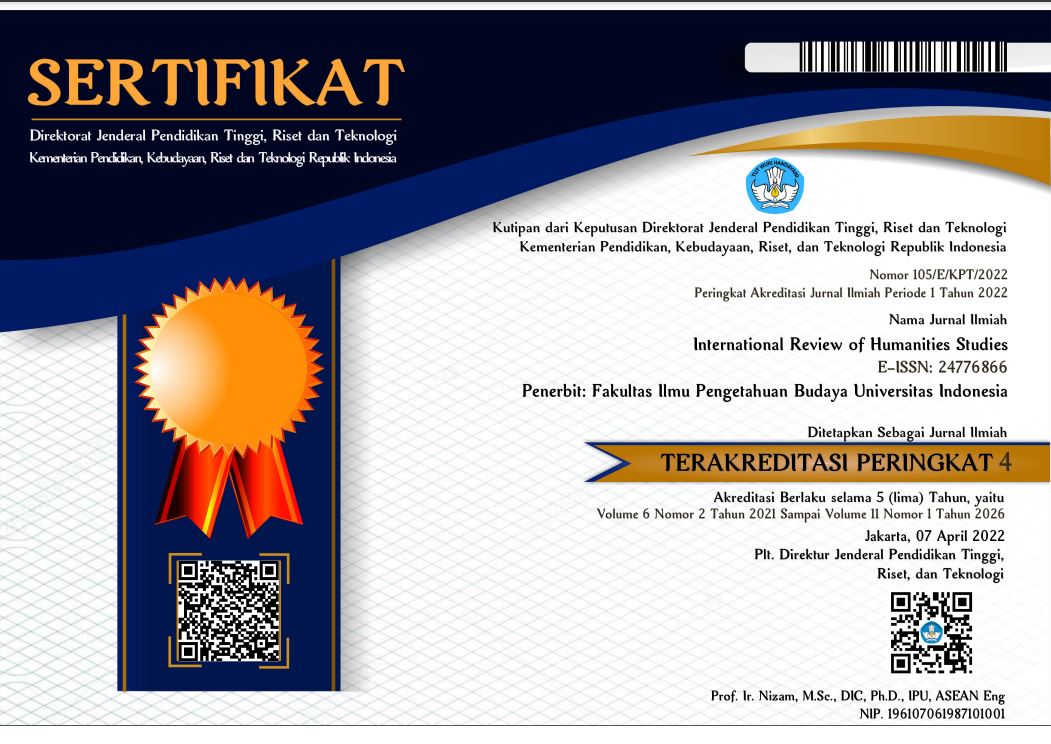International Review of Humanities Studies

|
Prof. Dr. Maman Lesmana (Scopus ID: 57224439245), Faculty of Humanities, Universitas Indonesia |
|
Dr. Chukwuma Anyanwu, Delta State University, Lagos, Nigeria |
|
Seno Gumira Adjidarma, Jakarta Institut of Arts, Jakarta, Indonesia |
|
Goh Beng-Lan, (Scopus ID: 56053649700), National University of Singapore, Singapore |
|
Melani Budianta, (Scopus ID: 14826353500), Faculty of Humanities Universitas Indonesia, Indonesia |
|
Prof. Dr. Zeffry Alkatiri, Faculty of Humanities Universitas Indonesia, Indonesia |
|
Nasha Rodziadi Khaw, Universiti Sains Malaysia, Malaysia |
|
Dr. Ade A.S Fajarwati , Binus University, Indonesia |
|
Multamia R.M.T. Lauder, (Scopus ID: 57201059503), Faculty of Humanities, Universitas Indonesia, Indonesia |
|
Mikihiro Moriyama , (Scopus ID: 56178520000), Nanzan University, Japan |
|
F.X. Rahyono, (Scopus ID: 57208281025), Faculty of Social dan Humaniora, Universitas Buddhi Dharma, Tangerang, Indonesia |
|
R. Cecep Eka Permana, (Scopus ID: 57201648800), Faculty of Humanities, Universitas Indonesia, Indonesia |
|
Hanggar B. Prasetya, Institut Seni Indonesia, Yogyakarta, Indonesia |
|
Dr. Bustanuddin Lubis, Universitas Bengkulu, Bengkulu, Indonesia |
|
Dr. Ali Akbar, Faculty of Humanities Universitas Indonesia, Indonesia |
|
Wiwin Djuwita Ramelan, Association of Indonesian Archaeologists (IAAI) |
|
Ani Widyani Soetjipto, (Scopus ID: 57217596597), Faculty of Social and Political Sciences, Universitas Indonesia |
|
Fridus Stejlen, (Scopus ID: 24318490200), KITLV-Leiden |
|
Ninie Susanti, Indonesian Epigrapher Association |
|
Robert Sibarani, (Scopus ID: 57201024223), Fakultas Ilmu Budaya, Universitas Sumatra Utara, Indonesia |
|
Sonny Chr. Wibisono, The National Research and Innovation Agency, Jakarta, Indonesia |
|
Untung Yuwono, (Scopus ID: 57208209240), Faculty of Humanities, Universitas Indonesia, Indonesia |


